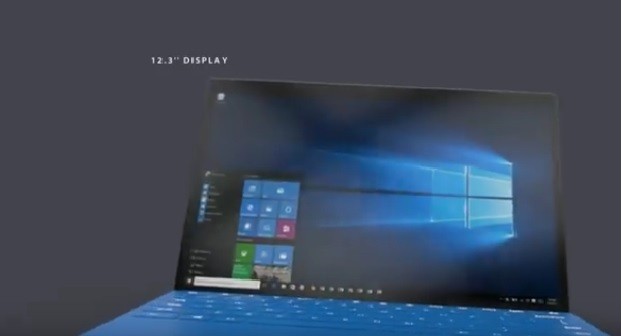Microsoft just dropped a hint on why the Surface Pro 5 release date did not push through this 2016 - the 2-in-1 is not supposed to run on Intel Kaby Lake or any other upcoming architecture from the giant chipmaker. Instead, the design was for the hybrid tablet to power up on ARM chips, specifically Qualcomm's Snapdragon 835.
It is confirmed that in upcoming Windows 10 updates, the operating system will fully support SD 835, according to The Verge. Microsoft's announcement that in 2017 there will be laptops running on the chip as well as the company's very own Surface mobile devices that include the rumored Surface Phone and possibly the sequel to the Surface Pro 4.
And the Surface Pro 5 switching from Intel to ARM, thus running on SD 835, makes sense, The Verge said in a separate report. For one, "ARM compatibility in Windows 10 opens up a whole new world of hardware options ... and Microsoft now has the tools to make the Surface Pro the ultimate mobile computer," the report added.
One immediate benefit of the SP5 on SD 835 is extended battery life as essentially the Windows 10 tablet will have the same engine found on Android and iOS devices. Would-be Pro 5 users are likely to get nearly the same amount of battery juice that for now is seen only iPads and Android tablets, the report said.
And having LTE, according to The Verge, is a welcome treat that certainly mobile professionals will appreciate. With ARM-based processors or specifically the SD 835, the Surface Pro 5 "could go from very good to great," the report said.
Per Microsoft, Intel will remain in the Windows 10 platform and with the Surface mobile supply chain. The tech giant said it will be up to customers what Windows 10 experience will suit their needs and the choice is between Intel and ARM.
The likely scenario is the Surface Pro 5 will run on ARM's SD 835 and both the Surface Book 2 and Surface Studio, and their succeeding iterations, will rely on the Intel chip architecture.
Now, whether running on SD 835 or Intel Kaby Lake the Surface Pro 5 release date is likely to happen after two upcoming big OS updates from Microsoft - the Windows 10 Creators (erstwhile Redstone 2) Update in March of the Redstone 3 Update rollout in July or August.



























